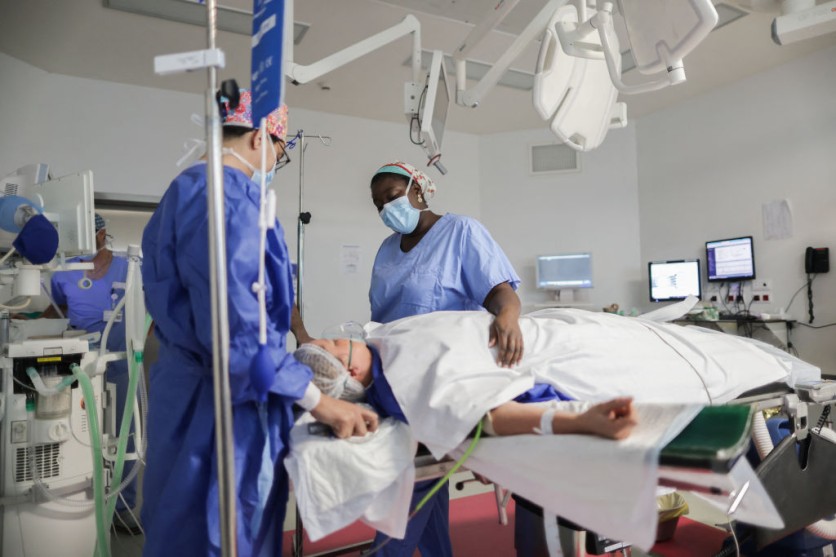At the world's largest cancer conference in Chicago, doctors acknowledged that reducing therapy for three cancers can reduce patient burden without risking results.
Studies presented during the recent American Society of Clinical Oncology conference demonstrated a trend toward investigating whether fewer surgeries, chemotherapy, or radiation treatments could extend patients' lives and improve their quality of life, according to a report published by ABC News. The current studies focused on ovarian, esophageal, and Hodgkin lymphoma.
Cancer research 30 years ago stressed harsh therapies. Advanced breast cancer patients had extensive chemotherapy and bone marrow transplants, which did not enhance outcomes and caused severe agony.
Now, researchers doubt intensive therapies are essential. Kaiser Permanente National Cancer Excellence Program medical director Dr. Tatjana Kolevska, who was not involved in the current research, questioned whether the treatments implemented in the past are still necessary.
Drug advancements allow for less intense therapy. Dr. William G. Nelson of Johns Hopkins School of Medicine, who was not involved in the research, noted that cancer treatments nowadays are "becoming more effective" and "easier to tolerate" with fewer complications.
What Do Cancer Researchers Say?
French researchers showed that excluding healthy-looking lymph nodes during advanced ovarian cancer surgery is safe. In 379 individuals, lymph node removal did not affect survival after nine years. Less extreme surgery, such as blood transfusions, had fewer problems. The French National Cancer Institute supported the study.
In a German study of 438 esophageal cancer patients treated with surgery, two methods had identical survival rates. Two groups received chemotherapy, surgery, and radiation. After three years, 57% of chemo and surgical patients survived, compared to 51% of radiation patients. The German Research Foundation financed the study.
A study compared two chemotherapy regimens for advanced Hodgkin lymphoma and found the less rigorous treatment more successful and less harmful. After four years, 94% of patients getting less rigorous chemotherapy were disease-free, compared to 91% of those receiving more extensive therapy. Takeda Oncology, a drug maker in the less intense regimen, financed the research, which comprised 1,482 patients from nine countries.

AI is Helping Fight Cancer
This advancement in cancer treatment follows a breakthrough marked by US and Australian researchers demonstrating a system powered by artificial intelligence (AI) for faster and more accurate brain cancer detection, as previously reported by TechTimes.
The Australian National University and the National Cancer Institute in the US have built a deep learning algorithm to predict DNA methylation, which governs gene activity, and classify brain cancers into 10 broad groups.
The US-Australian DEPLOY system analyzes patient histopathology pictures, first described in Nature Medicine.
Many hospitals worldwide do not offer DNA methylation-based profiling, which takes weeks. Australian National University research fellow Danh-Tai Hoang thinks AI will speed up diagnosis.
Hoang called the present brain tumor detection procedure "very time-consuming" since findings take two to three weeks. He and other researchers found that DEPLOY can rescue many brain tumor patients, especially high-grade ones.
On 4,000 US and European patient datasets, the researchers tested their AI model with 95% accuracy.
According to the World Health Organization, cancer is the second-leading cause of death worldwide. The disease killed 9.6 million people in 2018, with the most prevalent cancers in men being lung, prostate, colorectal, stomach, and liver, while the most common cancers in women were breast, colorectal, lung, cervical, and thyroid.
Cancer burden grows worldwide. Low and middle-income nations are least prepared to handle this load, with many cancer patients missing prompt and effective diagnosis and treatment.
Related Article : New Lung Cancer Drug Halts Disease Progression Longer Than Ever Before

![Apple Watch Series 10 [GPS 42mm]](https://d.techtimes.com/en/full/453899/apple-watch-series-10-gps-42mm.jpg?w=184&h=103&f=9fb3c2ea2db928c663d1d2eadbcb3e52)



